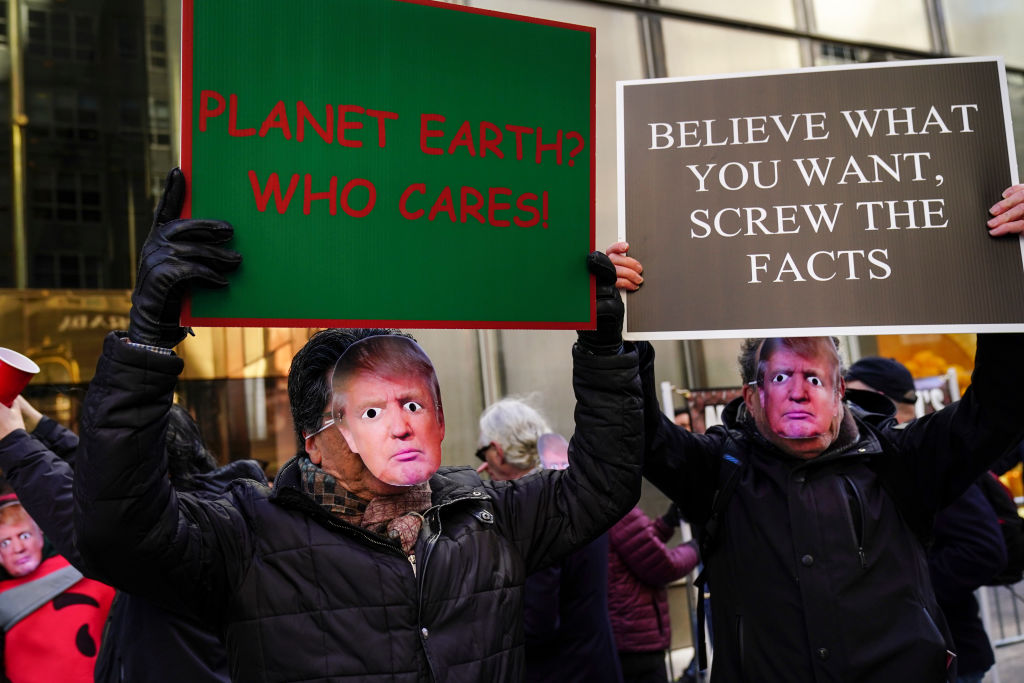Two years ago, we at The Pipeline reported on Justin Trudeau's bizarre decision to go ahead with a planned doubling of Canada's Federal Carbon Tax -- on April Fool's Day, no less -- despite the fact that the entire world was in the midst of a rapid economic downturn brought about by government imposed lockdowns intended to slow the spread of the then-extremely novel Wuhan coronavirus. Trudeau's defense of this move was more ludicrous than the decision itself. He said,
We know that it is important that we put more money in the pockets of Canadians at this point when they’re stressed. Our plan on pricing pollution puts more money upfront into people’s pockets than they would pay with the new price on pollution. We’re going to continue to focus on putting more money in people’s pockets to support them right across the country.
That is to say, Trudeau held that Canadians would be better off having their carbon emissions taxed -- "price on pollution" was at the time a newly developed p.r. consultant phrase whose object was to convince Canadians that the tax would be paid by Captain Planet villains rather than themselves -- because they would actually be getting more money back on the tax rebate than they'd paid in the first place.

There's a sucker born every minute.
This deal sounded too good to be true at the time, and it turns out it was: just last week, Yves Giroux of the Parliamentary Budget Office issued a report which found that "most households in Alberta, Saskatchewan, Manitoba and Ontario will see a 'net loss' resulting from federal carbon pricing." The National Post reports,
As the carbon pricing increases, lower income households should continue to receive rebates, but middle-class and upper-class households should be expecting to pay hundreds, if not thousands [of dollars per year] according to the P.B.O., depending on their carbon consumption. In Alberta, the PBO expects that lowest-income households could expect to receive up to $246 back in their pockets this year, but highest-income households can expect to pay up to $1,925. In the end, Albertans will end up paying $507 per household on average. In 2030, the PBO calculated that these same households in Alberta could be receiving $660 or paying up to $7,402. The net loss on average would be $2,282 per household.... In Ontario, this year, lowest-income households could get back $150 this year and the highest-income households would be paying $1,137. In 2030, lowest-income households could get back $460 and those with a higher income could pay up to $4,866 for carbon.
These numbers are shocking, even to those of us who said at the time that the Liberals' math didn't add up.
Nevertheless, and despite the skyrocketing price of oil and record-breaking gasoline prices instigated in part by another international crisis, the Trudeau government is again pressing ahead with a carbon tax increase on April 1st. The new price will be $50 per ton of carbon emitted, a 25 percent increase on the present number. Dan McTeague of Canadians for Affordable Energy, in a post written before the invasion of Ukraine, pointed out what this increase will mean for Canadians:
- Higher gasoline, diesel, heating oil, propane, and natural gas prices, and higher electricity prices wherever those hydrocarbon fuels are necessary to generate electricity (remember that when wind isn’t blowing or hydro levels aren’t there – as often happens in the winter – you need backup power).
- Higher food prices, as farmers have to pay more for energy to produce food, and all of us have to pay for the higher energy costs to transport food to grocery stores. (Have you noticed the price of a litre of milk lately?)
- Higher prices for consumer goods like clothing, and furniture, and everything else – which is everything – that is dependent on energy.

A fool and his tax dollars are soon parted.
Of course, Putin's war means that those increases will come from a higher baseline than they otherwise would have. And all in the service of hitting impossible emission reduction targets. As McTeague explains in a more recent post, the Trudeau government's stated goal is to cut Canadian carbon emissions by 40 percent over the next eight years, despite the fact that they've only succeeded in cutting them by 1 percent over the past fifteen years. And that was achieved via the low-hanging fruit of transitioning away from coal and towards natural gas.
Which is to say, at a perilous time for the world economy, Justin Trudeau and Co. are putting their ideological obsessions ahead of the welfare of regular Canadians.
The more things change, the more they stay the same, and the April foolishness continues.




